Kim Paffenroth: Dante Alighieri in the Valley
By, Rich Ristow
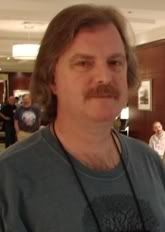 Kim Paffenroth loves the living dead – and, with the notable exception of Orpheus and The Pearl, it's zombies that populate his horror fiction. He won a Bram Stoker award for his non-fiction book Gospel of the Living Dead, and he's written two acclaimed novels for Permuted Press, Dying To Live and Dying to Live: Life Sentence. Also, he's edited two short story anthologies, each of which has put fresh spins on what many have considered a genre beginning to retread common themes. History Is Dead is instructive, in this regard. Contributors adapted and placed zombies throughout different historical epochs and eras. It's something Paffenroth
Kim Paffenroth loves the living dead – and, with the notable exception of Orpheus and The Pearl, it's zombies that populate his horror fiction. He won a Bram Stoker award for his non-fiction book Gospel of the Living Dead, and he's written two acclaimed novels for Permuted Press, Dying To Live and Dying to Live: Life Sentence. Also, he's edited two short story anthologies, each of which has put fresh spins on what many have considered a genre beginning to retread common themes. History Is Dead is instructive, in this regard. Contributors adapted and placed zombies throughout different historical epochs and eras. It's something Paffenroth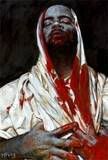 has recently done himself, albiet on a larger scale. Valley of the Dead (Limited edition from Cargo Cult Press) combines two of Paffenroth's interests: it features zombies and a figure from Paffenroth's day job as a religious scholar, Dante Alighieri, author of The Divine Comedy. Dark Scribe Magazine recently posed Paffenroth a few questions regarding his new novel and the poet he admires.
has recently done himself, albiet on a larger scale. Valley of the Dead (Limited edition from Cargo Cult Press) combines two of Paffenroth's interests: it features zombies and a figure from Paffenroth's day job as a religious scholar, Dante Alighieri, author of The Divine Comedy. Dark Scribe Magazine recently posed Paffenroth a few questions regarding his new novel and the poet he admires.
Dark Scribe Magazine: You're a religious scholar, a fiction writer, and above all else, a reader. How does each role change your approach to a poet like Dante and a work like The Divine Comedy?
Kim Paffenroth: As a reader, I guess I put Dante more in charge than I do with the other roles you mention. I want to follow his lead, understand and appreciate him on his terms. I fall into the cadence and life of his poem. I'm more of a spectator or fan, at that point, even if I'm still critical and engaged with him.
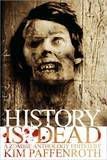 As a scholar, he's more objectified, a subject of study, his words up for dissection and analysis. That being said, I'm passionate about ideas, so the analysis is never completely dry and detached, but is still an energizing, exciting experience.
As a scholar, he's more objectified, a subject of study, his words up for dissection and analysis. That being said, I'm passionate about ideas, so the analysis is never completely dry and detached, but is still an energizing, exciting experience.
When I went to write my own version of Inferno, I did so after working with Dante in the other two ways for 22 years. I'd internalized a lot of his views. Imagining what he'd say to a beautiful woman when he first met her was much more natural and instinctual. The way he'd pray or get angry felt the same way: you can feel yourself getting worked up as you're writing it, and it's because the emotions are so much more real and personal, since you've been living with this author for most of your life. It wasn't even really imagining it, at that point - it was more putting yourself in your Dantean mode and running with it.
Dark Scribe: What is it, particularly about Dante, that speaks to you? What makes him different from other religiously Christian poets, like John Milton?
Kim Paffenroth: Poor Milton. I want to like him. He's not even in translation for me, so I can experience 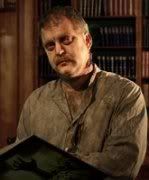 him in our native English and appreciate what he does with it, but he never gets beyond being a curiosity, an antique, to me. I think there are two related things that work together with Dante to make me such a fan. His theology is just more appealing. It's positive, optimistic, affirming - even though he's known for all those ghastly images. And what makes it this way, I think, is the other aspect of his work that resonates with me: it's so personal, based on his own loves and disappointments and doubts. His work is scholasticism at its most subtle and arcane, but it's always passionate. He has a very involved analysis of sin, to say the least, but you never lose sight of how much he hates sin (in himself and in others). He has a very cerebral description of the intricacies of love, but the delight and wonder of it are never left behind.
him in our native English and appreciate what he does with it, but he never gets beyond being a curiosity, an antique, to me. I think there are two related things that work together with Dante to make me such a fan. His theology is just more appealing. It's positive, optimistic, affirming - even though he's known for all those ghastly images. And what makes it this way, I think, is the other aspect of his work that resonates with me: it's so personal, based on his own loves and disappointments and doubts. His work is scholasticism at its most subtle and arcane, but it's always passionate. He has a very involved analysis of sin, to say the least, but you never lose sight of how much he hates sin (in himself and in others). He has a very cerebral description of the intricacies of love, but the delight and wonder of it are never left behind.
Dark Scribe: What does Dante have to offer to a contemporary reader?
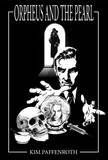 Kim Paffenroth: Dante shows how the universe is a good place, a place in which ultimately only love and beauty exist. Again, I underline the irony, since "Dantean" is an adjective used to mean the most hideous and grotesque things we can imagine (like zombies). His honest, even graphic and brutal appraisal of evil, makes his faith in ultimate goodness all the more convincing and relevant to us, since we are all, I think, quite convinced of the reality of evil. He's not at all like those Christians who turn away from evil and ignore it and say it'll all work out and you shouldn't question God's plans; nor is he like those who simply blame all the evil on other people. And that's another strength of Dante's: he shows us how people long before us could be just as enlightened and humane as we like to imagine ourselves to be. Even though everyone today rightly chastises him for treating homosexuality as a sin punished in Inferno, they overlook the fact that he is more open to non-Christians than many Christians are today, believing that some of them may be saved, even as he is convinced many so-called Christians will not be.
Kim Paffenroth: Dante shows how the universe is a good place, a place in which ultimately only love and beauty exist. Again, I underline the irony, since "Dantean" is an adjective used to mean the most hideous and grotesque things we can imagine (like zombies). His honest, even graphic and brutal appraisal of evil, makes his faith in ultimate goodness all the more convincing and relevant to us, since we are all, I think, quite convinced of the reality of evil. He's not at all like those Christians who turn away from evil and ignore it and say it'll all work out and you shouldn't question God's plans; nor is he like those who simply blame all the evil on other people. And that's another strength of Dante's: he shows us how people long before us could be just as enlightened and humane as we like to imagine ourselves to be. Even though everyone today rightly chastises him for treating homosexuality as a sin punished in Inferno, they overlook the fact that he is more open to non-Christians than many Christians are today, believing that some of them may be saved, even as he is convinced many so-called Christians will not be.
Dark Scribe: In Valley of the Dead, you use quoted sections from The Inferno, and then mirror the content with your story. How did you come up with this idea?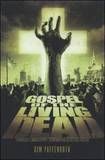
Kim Paffenroth: It's embarrassing, as I should've thought of it on my own, but it was my most loyal beta reader, Dr. Robert Kennedy, who suggested it. I had planned that each chapter in Valley would be a "demythologized" version of an Inferno canto (assuming zombies are less mythological than demons and monsters from Greek mythology, which I think is a fair statement for a modern audience), but I was too dense to think of the opening quotations.
Dark Scribe: Would you view your novel as a sort of poetic hybrid? Using, for instance, Dante as a found text to interact with?
Kim Paffenroth: That's an interesting way to put it. It is a novelization of a poem, so I suppose that's a hybrid. It's funny, but I think it's almost an extension of what Dante did when he wrote in the vernacular instead of Latin: if he were alive today, I think he'd be writing novels and not epic poems (or, even more likely, making films), because that would be the way to get his message to "regular" people and not just scholars.
Dark Scribe: The history of literature is filled with writers playing around with other writers, their characters, and ideas. For example, people rewrite/update Shakespeare all the time. Dante himself made Virgil into a character in The Divine Comedy. Yet, contemporary readers tend to look down their nose at "fan fiction." What's the difference between a work like yours, or even Ursula K. LeGuin, who recently wrote a novel based on Virgil's Aeneid, and what readers might perceive as "fan fiction?"
Kim Paffenroth: That's a funny way to look at it! Homage to "great" literature is okay, but "fan fiction" isn't!
I think the perception with fan fiction is that it's a cop out - that you're not doing the hard work, that you're not being creative, but are just capitalizing on someone else's success - cheating, in a way. I think if you're working on a piece of writing from centuries ago, that accusation wouldn't be relevant. I'm not trading on Dante's notoriety: if anything, I'm trying to make him better known to a new audience, have his story experienced by them in a genre that they find more appealing and accessible than thousands of lines of terza rima. Such work is more clearly homage and not exploitation.
Dark Scribe: How would you compare/contrast Valley of the Dead with your two Dying to Live novels?
 Kim Paffenroth: I think this takes zombies in a direction that fans of the genre will not expect, but I sure think they'll enjoy it once they get into the story and the characters. And it takes Dante in a direction that most of his fans won't expect, either, but they'll enjoy! I think one of the things Valley of the Dead achieves - just as a novel, never mind its basis in Dante - is its pacing. I really thought about interspersing action and slower sequences more carefully and strategically than I
Kim Paffenroth: I think this takes zombies in a direction that fans of the genre will not expect, but I sure think they'll enjoy it once they get into the story and the characters. And it takes Dante in a direction that most of his fans won't expect, either, but they'll enjoy! I think one of the things Valley of the Dead achieves - just as a novel, never mind its basis in Dante - is its pacing. I really thought about interspersing action and slower sequences more carefully and strategically than I 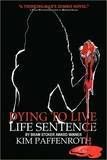 have before, and I think it flows better than my other novels.
have before, and I think it flows better than my other novels.
But comparison is apt, as well. All the books are about a bookish, almost nerdish kind of character who's suddenly thrust into a life and death situation, looking at how he'd react and how he'd make sense of it. That to me is an interesting, compelling, realistic dynamic.
Dark Scribe: Any plans or inspiration for more novels like Valley of the Dead, whether using Dante or otherwise? A new sub-genre of “historical religious horror?” (For example: personally, I think The Venerable Bede's "An Ecclesiastical History of the Church of England" could be a goldmine of source material).
Kim Paffenroth: I'd be open to the idea, but nothing definite yet. Of course I'm in envy over the Jane Austen version of zombies, but am also encouraged that it may be a sign of good things to come, for those of us who see something deeper in the zombie genre, and who see the relevance of classic literature to a new generation.
Dark Scribe: What's next for you?
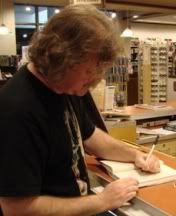 Kim Paffenroth: I'm shopping a modern day ghost story. A nice change from the carnage of a zombie apocalypse to a quieter story of how people hurt and lie to each other, often without meaning to.
Kim Paffenroth: I'm shopping a modern day ghost story. A nice change from the carnage of a zombie apocalypse to a quieter story of how people hurt and lie to each other, often without meaning to.
All the work's done on a new zombie anthology with Permuted Press, The World Is Dead. The hook this time is that all the stories are set significantly after the zombie uprising, so we're looking at how people and societies cope with a world of dead people. A nice assortment of stories from newcomers and veterans, and a nice range of different types of stories. We're just waiting on the cover art and blurbs and it'll be out later this year.
Next I'll work on the third book set in the Dying to Live universe. Look for more smart zombies and bad people, as that's my favorite recipe for mayhem and meaning.
For more on Kim Paffenroth, visit his official author website.
Purchase Valley of the Dead.




Reader Comments (1)
I think the best (and undoubtedly the most unique) thing about Kim's writing is that it takes on a sort of theist approach and atmosphere that a lot of people are afraid to tackle. When I first read Dying to Live , I was overwhelmed with the atmosphere he created, though not in a bad way. I think a lot of people (me included) tend to think that when a religious scholar or biblical person writes a book, it's going to be heavily inspired or influenced by their own faith. Though D2L had that sort of 'broader' feel to it in regards to the overall sense of 'what's really happening and who's really controlling it,' I didn't feel bogged down with the sense of 'you must believe this and not that' that I expected it might have had. That was the main thing that intimidated me when going into the book, particularly because of my Atheism. I'm glad to say that the book doesn't force itself or the views within it on you. When you think about it, it gives you a lot to think about, and makes it so much more darker because of the way it's written.
Regardless of whatever front his writing or background may pose, Kim is an amazingly talented writer and a really cool person. I had the chance to meet him at Horror Realm last year and he was nothing like I expected he would be. I'd highly recommend any of his work. I'm just sad to say I haven't read more of it.